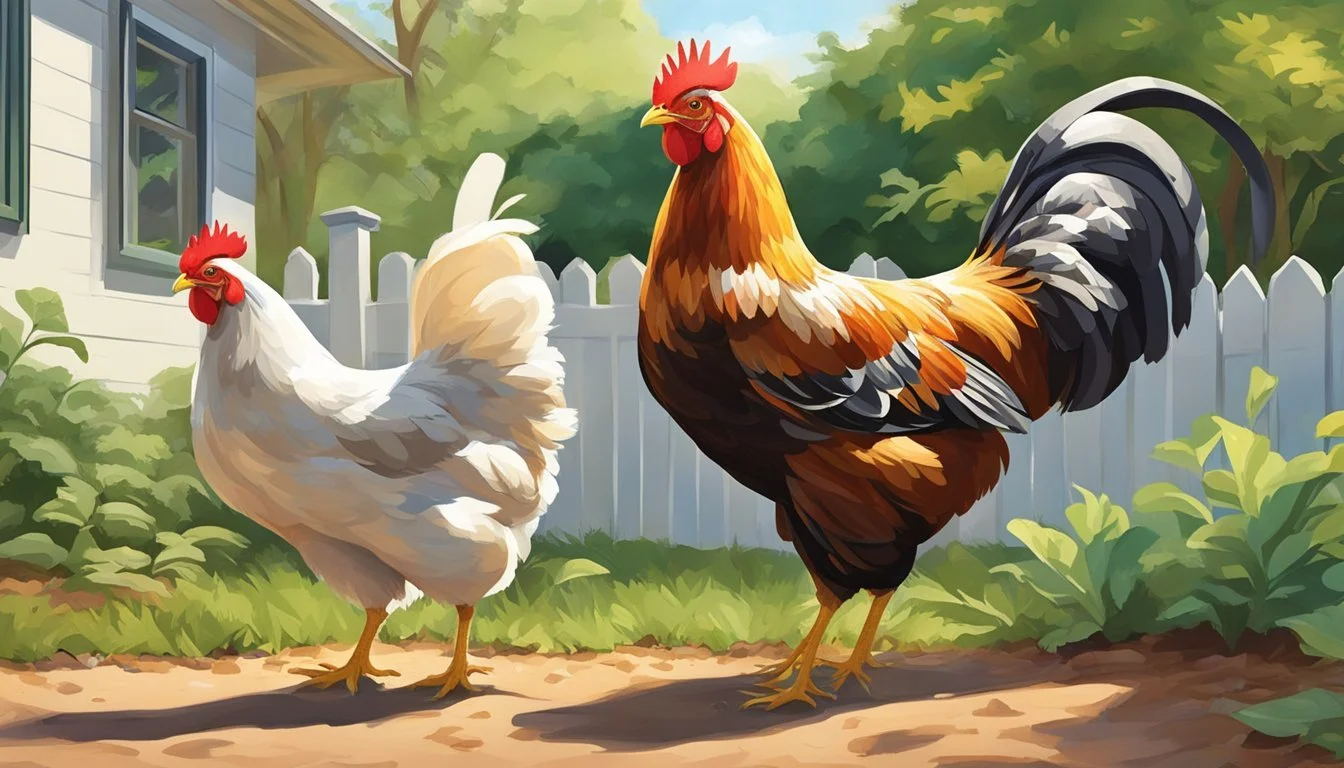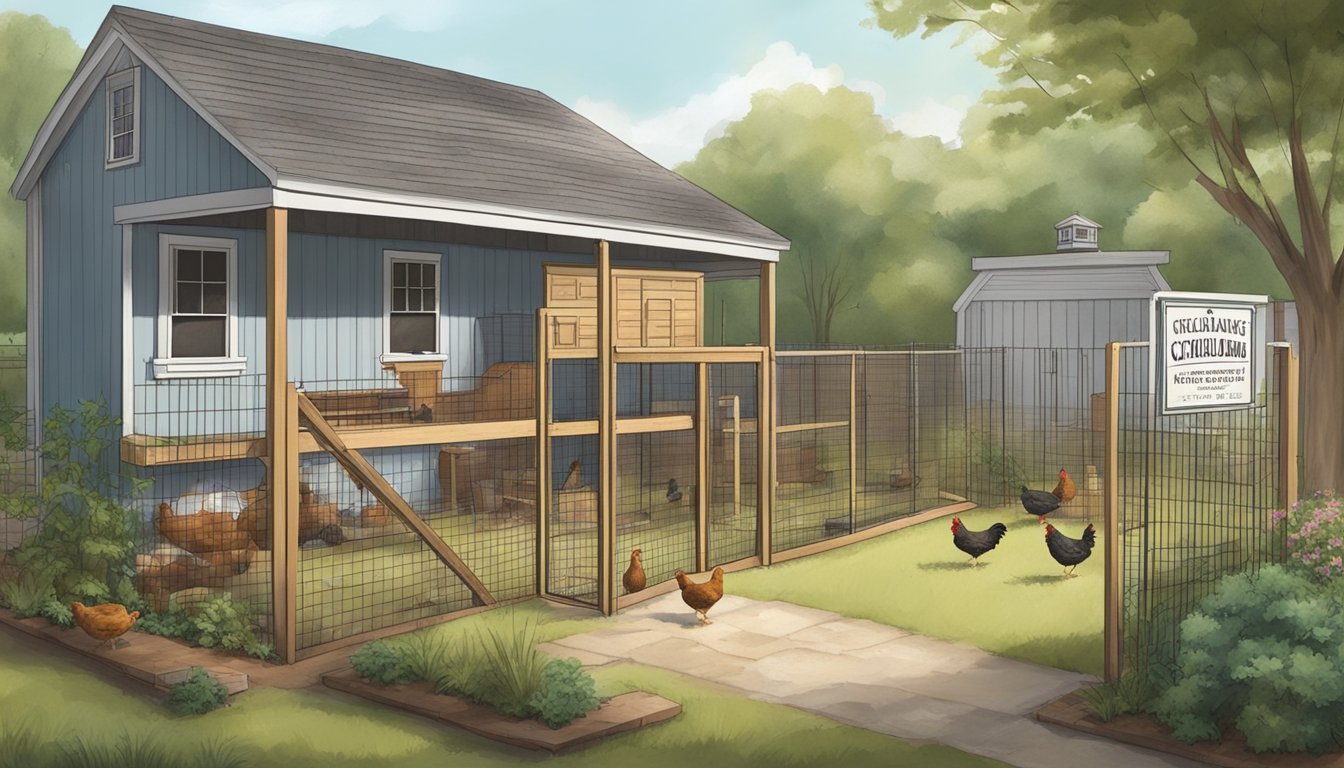Keeping Backyard Chickens in Savannah, GA
A Comprehensive Guide
Keeping backyard chickens (how long does chicken last?) has become a popular endeavor in many urban and suburban areas, with Savannah, Georgia being no exception. With the rise of local food movements and a growing interest in sustainable living, residents of Savannah are looking to integrate poultry into their backyards. This trend combines the benefits of fresh eggs with the joys of animal husbandry, all within the bounds of city living.
Navigating the laws and ordinances surrounding the keeping of backyard chickens is essential for any resident considering this practice. In Savannah, specific regulations are in place to ensure the health and safety of both the chickens and the community. These rules guide potential poultry keepers on important aspects such as the number of chickens allowed, space requirements, and the necessity of obtaining proper permits.
Understanding and adhering to these guidelines is crucial for a successful and lawful backyard chicken experience in Savannah. Compliance with local ordinances not only protects chicken owners but also maintains the community's harmony. As such, prospective chicken keepers must be well-informed about their responsibilities before bringing chickens into their backyards.
Legal Framework for Keeping Chickens
When considering raising backyard chickens in Savannah, GA, it is crucial to understand the specific legal framework that governs the activity, ranging from city and county ordinances to state regulations.
City and County Ordinances
The Savannah Chatham County zoning regulations stipulate distinct requirements for keeping backyard chickens. Local laws are tailored to ensure public health and safety without prohibiting the practice outright.
Understanding Savannah's Chicken Ordinance
Savannah's chicken ordinance was last updated on March 29, 2007, and allows residents to keep chickens under certain conditions. For personal, non-commercial use, the city permits one chicken per 1,000 square feet of high ground, with a cap of 30 chickens.
Comparison with Nearby Cities
In contrast to nearby cities such as Atlanta and Athens, Savannah permits a greater number of chickens. Atlanta has stricter limits and regulations regarding the keeping of backyard poultry as compared to Savannah's more lenient stance.
State Regulations and Permitting
The State of Georgia does not impose uniform chicken laws across all localities but mandates adherence to health and safety concerns statewide. Each city, including Savannah, may have unique permitting processes aligned with state guidelines.
Specific Restrictions and Requirements
Residents are required to comply with several restrictions when keeping chickens in Savannah:
Permit Requirement: Annual renewal is necessary for maintaining a permit to keep backyard chickens.
Location and Setback: There should be ample space to adhere to proximity rules, such as a specified distance from neighboring dwellings.
Health and Cleanliness: Owners must ensure a clean environment to prevent disease.
Limitations on Slaughtering and Composting: Activities such as slaughtering and composting are typically regulated.
Relationship to Pet Laws
The keeping of chickens in Savannah can be subject to pet laws, wherein a maximum of five fowl may be kept at least 100 feet from any residence, similar to regulations for pets such as rabbits or guinea pigs. This demonstrates an effort to integrate backyard poultry within the broader context of urban pet ownership.
Setting Up Your Chicken Coop
When setting up a chicken coop in Savannah, GA, it is important to comply with local building permits and health regulations to ensure the safety and well-being of the chickens.
Choosing the Right Location
The location of a chicken coop must adhere to Savannah's minimum setback requirements to prevent any disturbances to neighboring properties. For up to 10 chickens, a coop needs to be at least 25 feet away from neighboring living quarters, and 50 feet for more than 10 birds. The site should also offer protection from predatory animals and extreme weather conditions.
Design and Construction of Coops
Constructing a chicken coop requires a building permit for structures that are 120 square feet or larger. The design must facilitate easy cleaning to prevent diseases and should provide adequate ventilation. Coops should include nesting boxes for egg-laying and perches where chickens can roost.
Materials: Use durable materials that can withstand local weather conditions.
Security: Ensure the coop is predator-proof with appropriate fencing and secured doors.
Maintaining a Healthy Environment
Maintaining a clean coop is crucial for the health of backyard chickens. Regular removal of waste and soiled bedding, coupled with a proper composting system, can help keep the coop environment disease-free. In addition, providing fresh water and proper feed will help maintain the birds' health. It's important to monitor for signs of illness or distress in the flock to address any issues promptly.
Chicken Care and Management
Keeping backyard chickens in Savannah, GA requires diligent daily care, consistent health monitoring, effective pest management, and adherence to best practices for raising poultry to ensure the health and productivity of the flock.
Daily Care and Feeding
Chicken owners must provide fresh water and a balanced diet daily. A typical diet includes grains, pellets, and occasional treats such as vegetables and fruits. It's vital to measure food proportions to avoid overfeeding and maintain a clean feeding area to prevent disease.
Water: Fresh, clean water available at all times.
Feed: Commercially prepared chicken feed appropriate to the chicken's age and purpose (laying hens vs. meat chickens).
Treats: In moderation; examples include leafy greens and mealworms.
Health Monitoring and Veterinary Care
Regular observation is key to identifying any signs of illness, such as lethargy, abnormal droppings, or changes in appetite. Chickens should have a routine veterinary check-up, and vaccinations where appropriate, to prevent disease outbreaks.
Signs of Illness: Lethargy, respiratory issues, changes in droppings.
Routine Checks: Monthly inspections for parasites and overall well-being.
Veterinary Assistance: Sought immediately if serious health issues arise.
Dealing with Pests and Predators
Chickens can attract various pests and are susceptible to predator attacks. Coops must be secured against rodents and measures taken to deter flying predators and other common threats.
Pest Control: Regular cleaning, proper waste management, and deterrents.
Predator Deterrents: Sturdy fencing, covered runs, secure housing overnight.
Best Practices for Raising Chickens
Chickens thrive in a clean environment. Their coop should be regularly cleaned and bedding replaced to manage odors and prevent pest infestations. Chickens also benefit from having space to exhibit natural behaviors such as foraging and dust bathing.
Coop Maintenance: Regular cleaning with periodic deep cleans.
Space: Adequate space for the natural behavior of flock members.
Enrichment: Structures for climbing, areas for dust baths, and safe foraging opportunities.
Community and Neighbor Relations
In Savannah, GA, maintaining good relations within the community is integral to keeping backyard chickens. Residents must navigate neighborhood dynamics carefully, manage noise to prevent nuisance, and engage positively with the local community.
Navigating Neighborhood Dynamics
When keeping backyard chickens in Savannah, residents are required to obtain a permit, and for those intending to keep more than 10 birds, a greater distance from neighboring properties is mandatory. Specifically:
Up to 10 birds: Coops must be at least 25 feet from neighboring living quarters.
More than 10 birds: Coops must maintain a 50-foot distance.
Neighbor approval can sometimes waive these requirements. However, if a neighbor moves, the chicken keeper must secure permission from the new neighbor to maintain their setup.
Noise and Nuisance Management
Noise is a significant consideration, especially in urban areas where houses are closer together. In Savannah:
Roosters are allowed but may cause noise issues.
Owners should implement noise-reducing measures to lessen any potential disturbance, such as sound-insulating coop materials or strategic placement away from property lines.
Keeping the coop clean and managing waste correctly are crucial steps in minimizing odors and pests, which can lead to nuisances for neighbors.
Engagement with Local Community
Engagement with neighbors and the wider community is strongly advised for backyard chicken keepers in Savannah. They should:
Inform neighbors about their chicken-keeping activities.
Educate about the benefits, such as pest control and fresh eggs.
Share resources or excess produce to foster good relations and community spirit.
This proactive approach helps in building a supportive network and can aid in resolving any concerns or complaints that may arise from community members.





